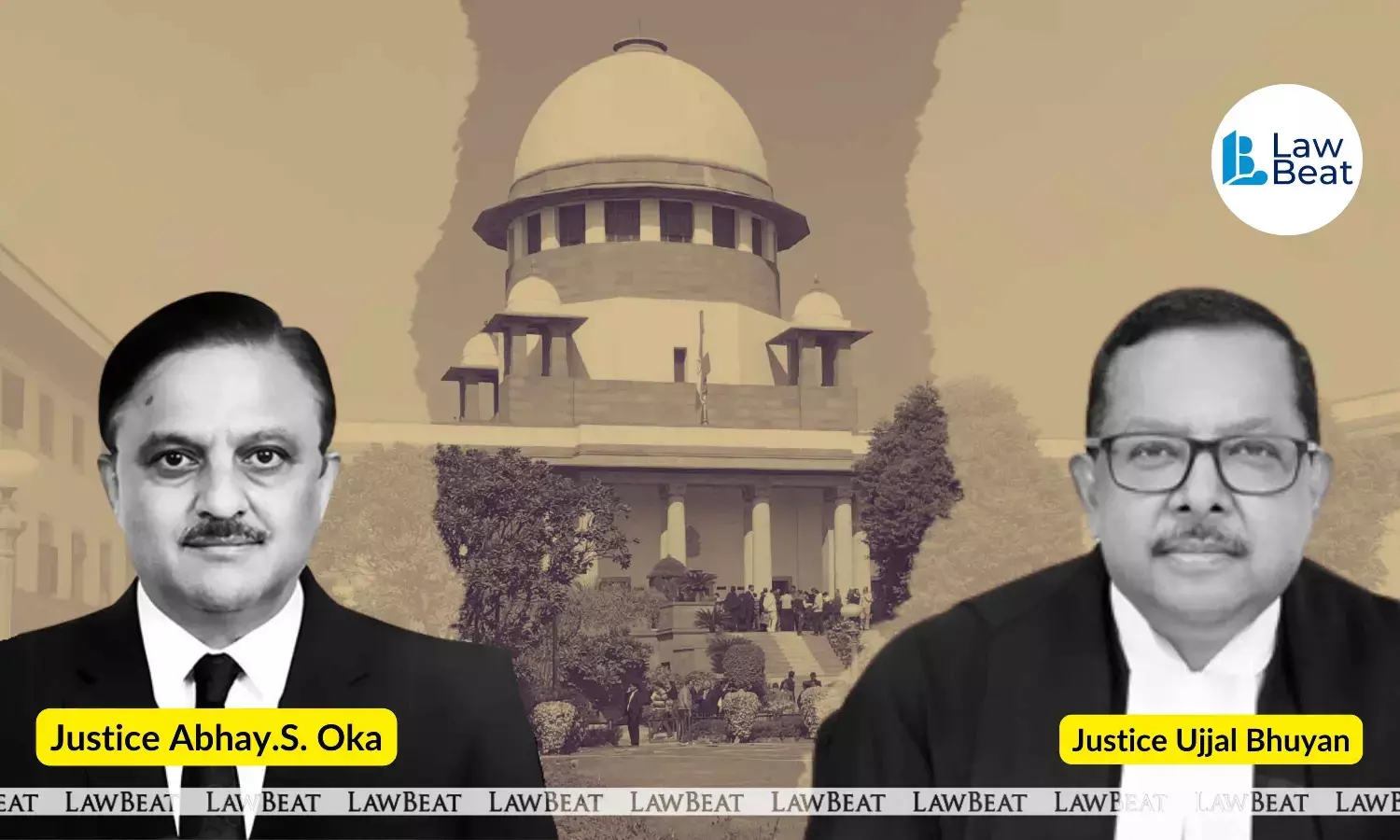POCSO Case: Supreme Court Invokes Art.142 To Withhold Sentence, Says Victim Traumatised By System; Not the Act

The Supreme Court on Friday declined to impose a sentence in a Protection of Children from Sexual Offences (POCSO) case, invoking its extraordinary powers under Article 142 of the Constitution.
The case, taken up suo motu, was triggered by controversial remarks made by the Calcutta High Court in its judgment concerning a minor, who is now an adult and living with the convict as her husband, along with their child.
The Bench of Justice Abhay S. Oka and Justice Ujjal Bhuyan held that “no sentence will be imposed”, citing the unique and complex circumstances of the case, which they described as a “stark reflection of the shortcomings in our legal and societal structures.”
“The facts of this case are an eye-opener. While the act may be defined as a crime under law, the victim never perceived it as such,” the Court observed, pointing to findings of a Court-appointed committee.
The Bench emphasized that the trauma faced by the victim did not stem from the act itself but from the aftermath, the scrutiny of police procedures, navigating the legal system, and the constant pressure to shield the accused from punishment.
“The real trauma was caused not by the act, but by society, the legal process, and her own family. She was denied the opportunity to make an informed choice, a right taken away by systemic and social failings,” the Bench noted.
The Court also highlighted the current relationship between the victim and the accused, stating that she is now emotionally bonded to him, considers him her husband, and is fiercely protective of their family unit.
“This is the reason why we are exercising our jurisdiction under Article 142—not to impose a sentence,” the Court declared.
In addition to withholding sentencing, the Bench issued directions to the State government and also served notice to the Ministry of Women and Child Development, asking for further measures and suggestions to prevent such situations in the future.
Background
Pertinently, on August 20, 2024, the Supreme Court had set aside the Calcutta High Court's order reminding female adolescents of their duty to protect their right to integrity of their body. The division Bench of Justices Abhay S Oka and Ujjal Bhuyan had also set aside the acquittal of the accused in the case under Section 376 IPC. While hearing the case, the Apex Court had also said that such observations sent a wrong signal.
Earlier, in 2023, the Supreme Court had said that such observations were prima facie completely in violation of the rights of the adolescents guaranteed under Article 21 of the Constitution.
Notably, the Supreme Court took up the matter suo motu as 'In Re: Right to Privacy of Adolescent', wherein a bench of Justices Abhay S Oka and Pankaj Mithal said, "Prima facie, we are of the view that while writing a judgment in such appeal, the Judges are not expected to express their personal views. They are not expected to preach."
Calcutta High Court Order
It is to be noted the High Court's Division Bench had set aside the conviction of an accused man after noting that he had married the minor girl and became the father of a girl child, noting "this was a case of non exploitative consensual sexual relationship between two consenting adolescents though consent in view of age of the victim is immaterial".
The High Court took into consideration the ground reality, subsequent development of birth of a child, peculiarity of facts and especially the economic conditions of the appellant and suffering of the victim since the date of arrest of her husband who (victim) is managing the family of an ailing mother-in-law and a small child without any support by her parents.
"We are constrained to take a humane view of the matter to do complete justice. We, therefore, invoke our inherent jurisdiction under Section 482 CrPC coupled with our plenary power under Article 226 of the Constitution of India and set aside the conviction of the appellant under Section 6 of the POCSO Act, Sections 376(3) and 376(2)(n) IPC," the High Court had said in its impugned judgment.
Case Title: In Re: Rights to Privacy of Adolescents
